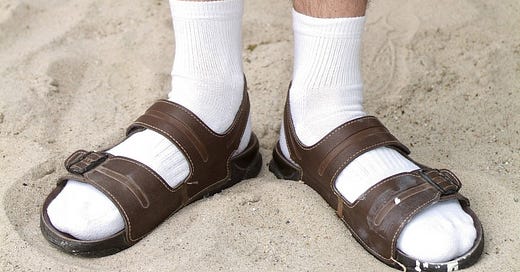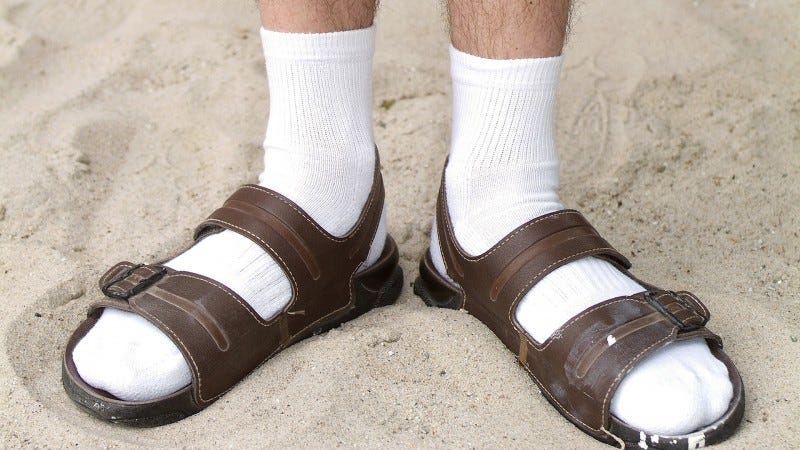“Be different so that people can see you clearly amongst the crowds.” Mehmet Murat ildan
LAUNDRY
“Tomorrow,” I say to my son, “we’ll go to the beach in the morning, then have lunch and hang around the boardwalk, maybe play some games. Does that sound okay?”
“Sure,” says Allen. He has finished putting his clothes away in the hotel dresser and we’re deciding on a movie to watch as the sun sets. “Well,” he says, “I’m going to go do my laundry.”
He disappears into the bathroom and I hear the sound of water running into the bathtub.
Laundry? We just arrived here an hour ago. What laundry could he possibly have to do? Long experience parenting this autistic adult has given me patience. I wait.
In a few minutes, Allen appears out of the bathroom with a pair of dripping socks in his hands. Leaving a trail of water across the rug, he opens the door to the balcony, then drapes the socks over the railing. He comes back into the room, picks up the TV remote, and says, “Sure hope they dry by morning.”
“You washed your socks?” I ask casually.
“Yep. I’ll need them for the beach. I only brought one pair.” He flips through channels with the remote.
“Oh. Okay.”
SAND
Now here is where someone new to the world of parenting on the autism spectrum might wonder why anyone would need socks–and not the beach volleyball kind which Allen finds too tight on his size 13 feet–but regular old white cotton socks. But I’m an old hand at this sort of thing now and I know that along with Asperberger’s Syndrome, Allen also has some sensory processing disorders. Sand is his kryptonite. To be fair, he used to abhor anything to do with the beach, including the sound of the ocean, seagulls cawing, and the smell of sunscreen. We’ve found ways to limit some of his sensory overloads but sand is pretty much everywhere.
Some individuals, such as Allen, feel “every grain of sand like needles on the body” (Safeharbour.com). Sand is the enemy, particularly when it lodges between his toes. There’s the additional vestibular problem of walking over uneven ground. I know Allen has to step WAY out of his comfort zone to go to the beach with me.
As he settles on a movie, I say, “Those can be your beach socks. Tomorrow we can buy you more. I am sort of wondering, though, why you only brought one pair. You knew we were coming to the beach for four days.”
He looks at me and nods his head.
“And didn’t I mention that you needed clothing for four days?
My son jerks his head back and his eyes widen. “Socks are clothing?”
I nod my head. Totally my mistake. I broke my own rule. Never assume anything.
SHOES
The next day we have lugged our beach gear across the sand and set up camp near the surf. “I’m going in!” I yell to Allen and kick off my sandals. Allen joins me in my run to the ocean. We stand for a few minutes, adjusting to the water, and I notice that Allen is wearing his almost new hundred dollar sneakers. In the ocean.
Casually, I say, “Remember that I told you to bring something to wear on your feet in the water? Like crocks?”
He nods. “I did. I brought these.” He lifts a size 13 fifty dollar shoe out of the water.
And, I think as I dive into a wave, that’s a conversation for another time.
AUTHOR’S NOTE: This episode is part of the story of Allen’s grief journey after his father died. As an autistic adult, Allen had a difficult time accepting the finality of his dad’s death; we spent eight months visiting places Allen thought his father would be. There is very little known about how adults on the autistic spectrum process grief. To raise awareness of the different ways those with autism may grieve, I hope to publish this book. You can help by following this blog, sharing it with others, and recommending your friends subscribe to this FREE publication.







Thanks for this story of life with an adult on the spectrum, Linda. My son is on a one-week trip to the beach with his adult family home. Could be interesting!